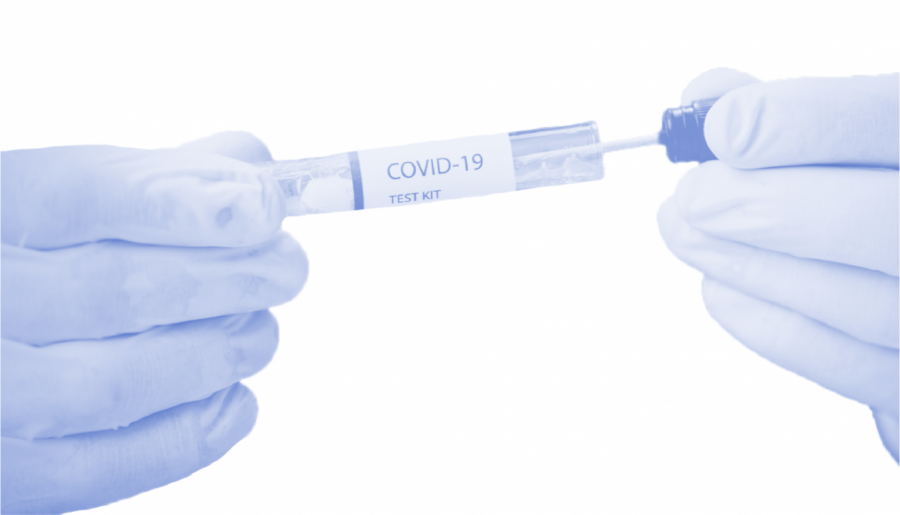Brown: If You’re Vaccinated Lose the Mask
(Design by Piper Armstrong | The Daily Utah Chronicle)
June 10, 2021
When the COVID-19 vaccines came out, I, like many others, researched vaccine effectiveness and then got vaccinated as soon as possible. With the CDC’s announcement that it’s okay for vaccinated people to strip the masks in most settings, the masks are coming off whether we like it or not.
However, in the name of extreme caution (or superstition, maybe), many still argue that masks should be worn, especially in places like Utah, which has a higher vaccine hesitancy than most regions in the United States. It’s not a privilege for vaccinated individuals to take off their masks, but a responsibility because an exhibition of trust in vaccines and public health officials would encourage others to get vaccinated.
On May 1, 2021, COVID-19 vaccine protesters gathered to burn a giant syringe in a sacrifice to the anti-vaccine gods. This outright rejection is no anomaly. According to a Deseret News poll, more than 30% of Utahns are either vaccine-hesitant or against getting a COVID-19 vaccine at all. While that percentage is high, it’s not particularly surprising.
Utah elementary schools are considered vulnerable to measles outbreaks due to high numbers of vaccine exemptions. Of course, those who are completely against vaccines aren’t likely to change their minds anytime soon. However, according to the same Deseret News poll, that leaves 17% of Utahns who can be convinced. So, this begs the question: what can be done to convince those who are vaccine-hesitant?
The truth is vaccines work. All available U.S.-approved COVID-19 vaccines have high efficacy rates. Because of that, I regularly engage in non-socially distanced activities without a mask, and my risk of community contraction is less than 0.001% each week. I’m more likely to guess the last few digits of Anthony Fauci’s phone number than contract COVID-19 through community spread this week. Those with underlying conditions should still be cautious, but vaccinated, healthy people, face little risk. So, perhaps the question to ask when it comes to mask-wearing is not “what’s the harm?” but rather “what’s the benefit?”
There have been many incentives to get more people vaccinated, from getting a chance to lap around Talladega Superspeedway to receiving a free Krispy Kreme glazed doughnut, or possibly winning more than a million dollars. As exciting as these incentives are, there’s a reality that some seem to be missing — people just want to get back to normal. Living life without masks indicates normalcy.
According to a Time/Harris poll, 23% of people who have gotten or plan to get a COVID-19 vaccine did so because of the CDC’s recent announcement. The study also shows that 41% of people who have gotten or plan to get a COVID-19 vaccine did so because they are worried about people around them who are unvaccinated and don’t wear masks. This works twofold. Those who wish to live a life free of the worries of COVID-19 can get vaccinated, and those worried that people won’t follow the rules can get vaccinated to protect themselves. The CDC has effectively moved life forward with this announcement.
It’s important to note that the CDC only has so much influence. While most believe that the organization is credible, only 27% of Republicans greatly trust the CDC. Vaccinated people showing those who aren’t vaccinated that life can go back to normal is the way to convince people to get the shot. Taking the mask off in places where masks can be taken off if vaccinated shows trust in science and scientists. By keeping the mask on after being vaccinated, it can indicate a distrust in science, and also demonstrates a sense of over-caution that people are not apt to follow.
For those who are vaccinated and healthy, it is safe to live your life without a mask. Enjoy it! But with that privilege, keep the community in mind. In a state where vaccine hesitancy is high, show those who are wary just how well the vaccine works and how freeing it can be. Ironically enough, taking off the masks that once were vital to public health might be the catalyst to greater overall health.









